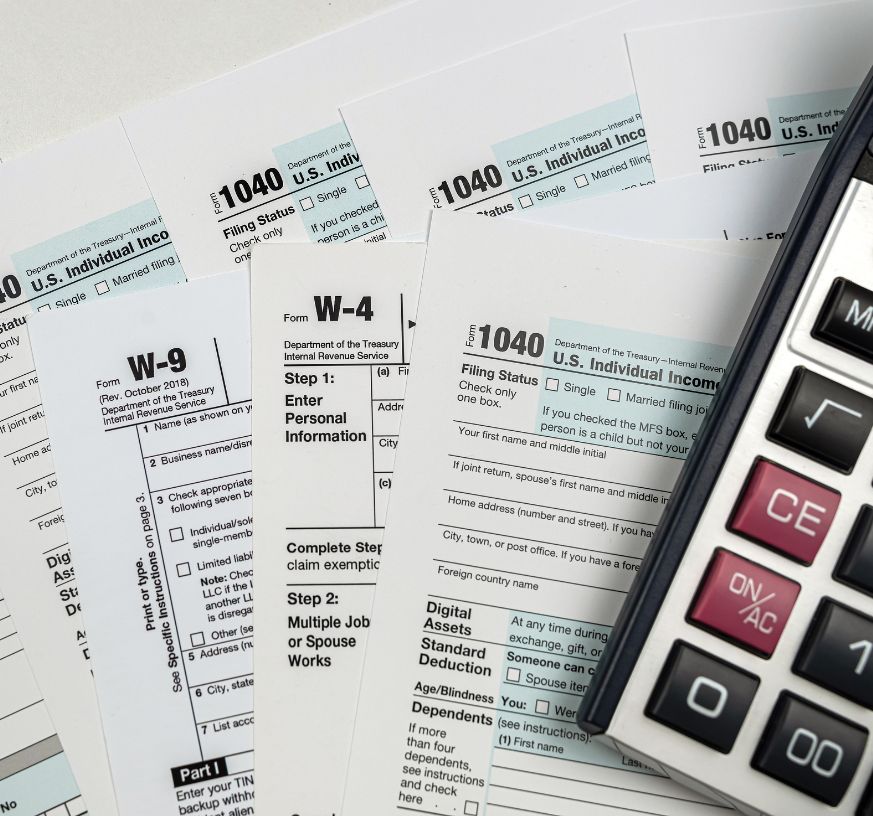Filing your taxes as a small business owner can be confusing. There’s no single tax form or rate for all businesses, and your taxes are largely dependent on your business. There are also annual changes to the tax forms for you to keep track of – in addition to managing your fluctuating expenses and cash flow. As a business owner, you want to make sure you’re getting the biggest tax break you possibly can while ensuring you’re compliant with all the regulations. Here, we break down the 2024 tax rates and common deductions.
The federal small business tax rate
Your tax rate depends on the structure of your business.
If your business is a C-corporation, you pay the flat corporate tax rate, which in 2024, is 21%. For sole proprietorships, partnerships, and S-corporations, their incomes are taxed at the business owner’s personal tax rate, which is between 10% to 37%. This is because they are considered pass-through entities. Limited liability companies (LLCs) have the option to pay taxes as a corporation or as a pass-through entity.
Estimating your 2024 business taxes
It’s common for business owners to not know what their revenue will look like each year, which, when tax rates are calculated by revenue, can make it difficult to anticipate your tax rate. However, the IRS still expects you to pay taxes throughout the year.
For C-corporations, you can simply apply the current corporate tax rate of 21% to your company’s taxable income. For instance, let’s say your C-corporation has a taxable income of $100,000. To calculate the tax due using the 2024 corporate tax rate of 21%:
Tax Due = Taxable Income x Tax Rate
Tax Due = $100,000 x 21%
Tax Due = $21,000
C-corporations are taxed separately from the business owner’s individual taxes. On the other hand, pass-through business owners basically include their business earnings on their personal tax forms and pay 10%-37% taxes depending on their overall personal income.
2024 Adjusted Personal Income Tax Rates
| RAX RATE | SINGLE | JOINT/MARRIED | HEAD OF HOUSEHOLD |
| 10% | $0 to $11,600 | $o to $23,200 | $0 to $16,550 |
| 12% | $11,601 to $47,150 | $23,201 to $94,300 | $16,551 to $63,100 |
| 22% | $47,151 to $100,525 | $94,301 to $201,050 | $63,101 to $100,500 |
| 24% | $100,526 to $191,950 | $201,051 to $383,900 | $100,501 to $191,950 |
| 32% | $191,951 to $243,725 | $383,901 to $487,450 | $191,951 to $243,700 |
| 35% | $243,726 to $609,350 | $487,451 to $731,200 | $243,701 to $609,350 |
| 37% | $609,351 or more | $731,201 or more | $578,101 or more |
Taking advantage of tax deductions
A tax deduction is an expense that the IRS recognizes as business expenses and allows you to subtract from your taxable income – which helps you pay less in federal and state taxes. A small business owner can reduce their taxable income by taking advantage of tax credits and exploring different deductibles. There are two ways to claim a business tax deduction: standard and itemized deductions.
A standard deduction is a fixed amount set by the IRS that you can subtract from your income without specifying every expense. It is a simplified way to do your taxes, while the itemized deduction involves detailing all your expenses such as office supplies, travel, rent, etc. This allows business owners to deduct the exact amount spent on these eligible items and is a lot more time-consuming than a standard deduction.
No matter which method you choose for your expenses, these are common deductibles for business owners and can often stack up to become a sizable deduction for your business.
- Deductible Business Expenses: Business expenses such as office supplies, marketing costs, and travel expenses are all deductible. Make sure to keep all receipts.
- Home Office Deduction: If you use a portion of your home exclusively for your business, you may qualify for a home office deduction. This would allow you to deduct some of your mortgage or utilities.
- Retirement Savings: Contributions to retirement plans such as 401(k) or Simplified Employee Pension (SEP) are tax deductible.
- Section 179 Deduction: Use Section 179 to deduct the costs of certain business properties like equipment or heavy machinery.
- Business Tax Credits: Explore business tax credits such as the Work Opportunity Tax Credit (WOTC) for hiring certain employees or the Small Business Health Care Tax Credit for providing employees with health coverage.
Tax laws change frequently so it’s important to stay on top of the latest regulations and how it impacts your business. Using a professional tax accountant can provide personalized guidance and ensure you’re getting all the tax deductions you’re eligible for as well as ensure you’re compliant with the latest tax code regulations.
2024 small business tax deadlines
Estimated Tax Deadlines
Instead of paying all taxes annually, businesses and freelancers pay taxes quarterly. This distributes the tax burden for small businesses and prevents a large tax liability at the end of the fiscal year.
In 2024, businesses and freelancers must file quarterly taxes by the following dates:
- First Quarter, January – March: Due April 15, 2024
- Second Quarter, April – May: Due June 17, 2024
- Third Quarter, June – August: Due Sept. 16, 2024
- Fourth Quarter, September – December: Due Jan. 15, 2025
It’s important to effectively manage your budget each quarter and stay ahead of tax deadlines to avoid late penalties and maintain a steady cash flow.
Filing your taxes
An accountant plays an important role for small business owners and provides peace of mind in ensuring your taxes are correct. An accountant can help understand tax rate changes, minimize tax liability, and take advantage of all available deductions. Accountants also manage important deadlines, so you don’t have to, helping you avoid late filing penalties and ensure compliance with the law. In case of an audit, accountants can provide the support and guidance to meet the audit requirements.
If an accountant is out of the budget or you’d rather manage your taxes yourself, there are many options for the small business owner to use. Software like QuickBooks or TurboTax make it easy for business owners to manage their bookkeeping and taxes. QuickBooks allows small business owners to automate bookkeeping tasks, organize transactions, assess their financial health, and seamlessly integrate with TurboTax. TurboTax guides users through the tax preparation process. Small business owners can import their data from QuickBooks to TurboTax. TurboTax prompts users with questions to identify potential deductions. TurboTax offers e-filing making it convenient for small business owners to submit their tax returns electronically.

















